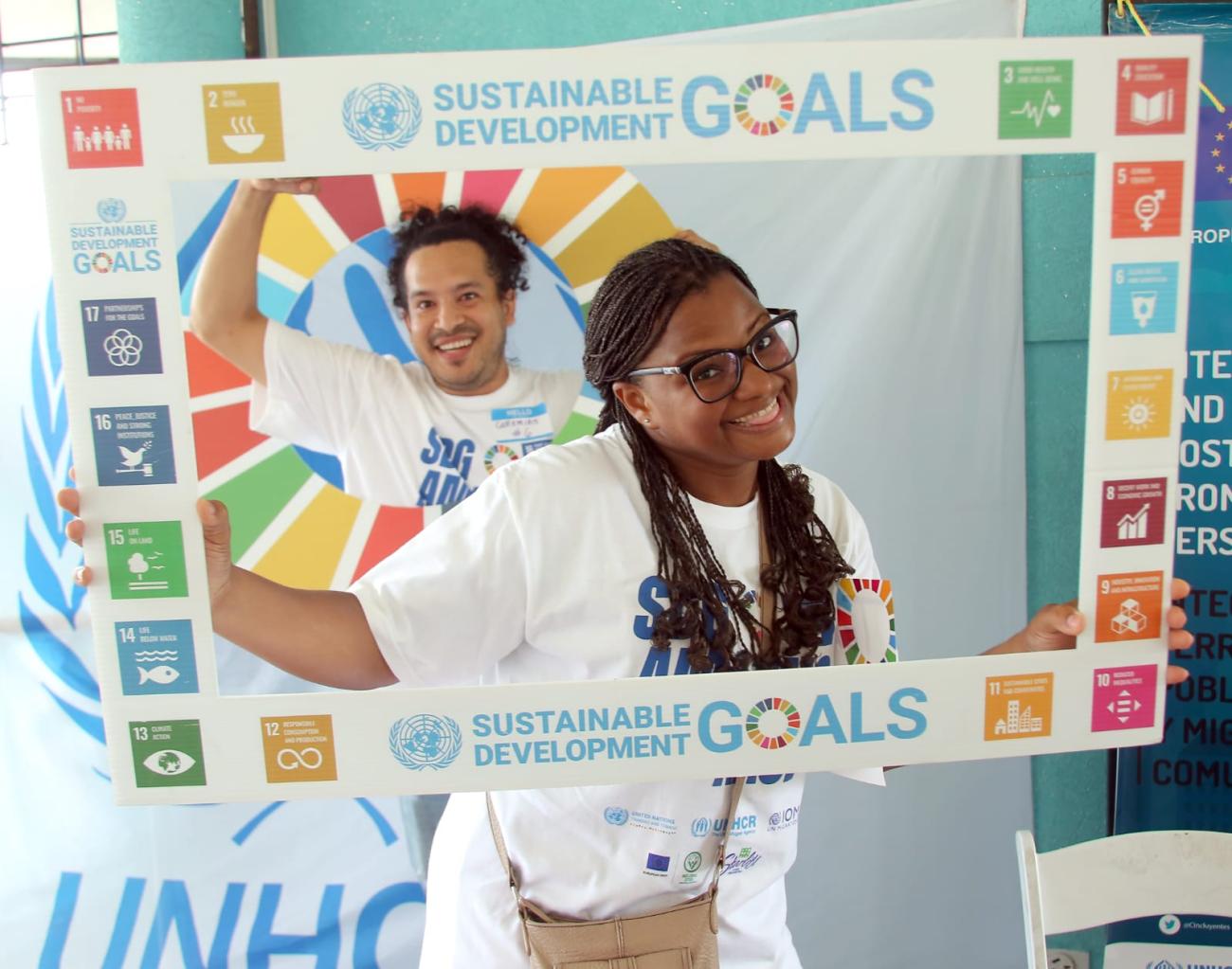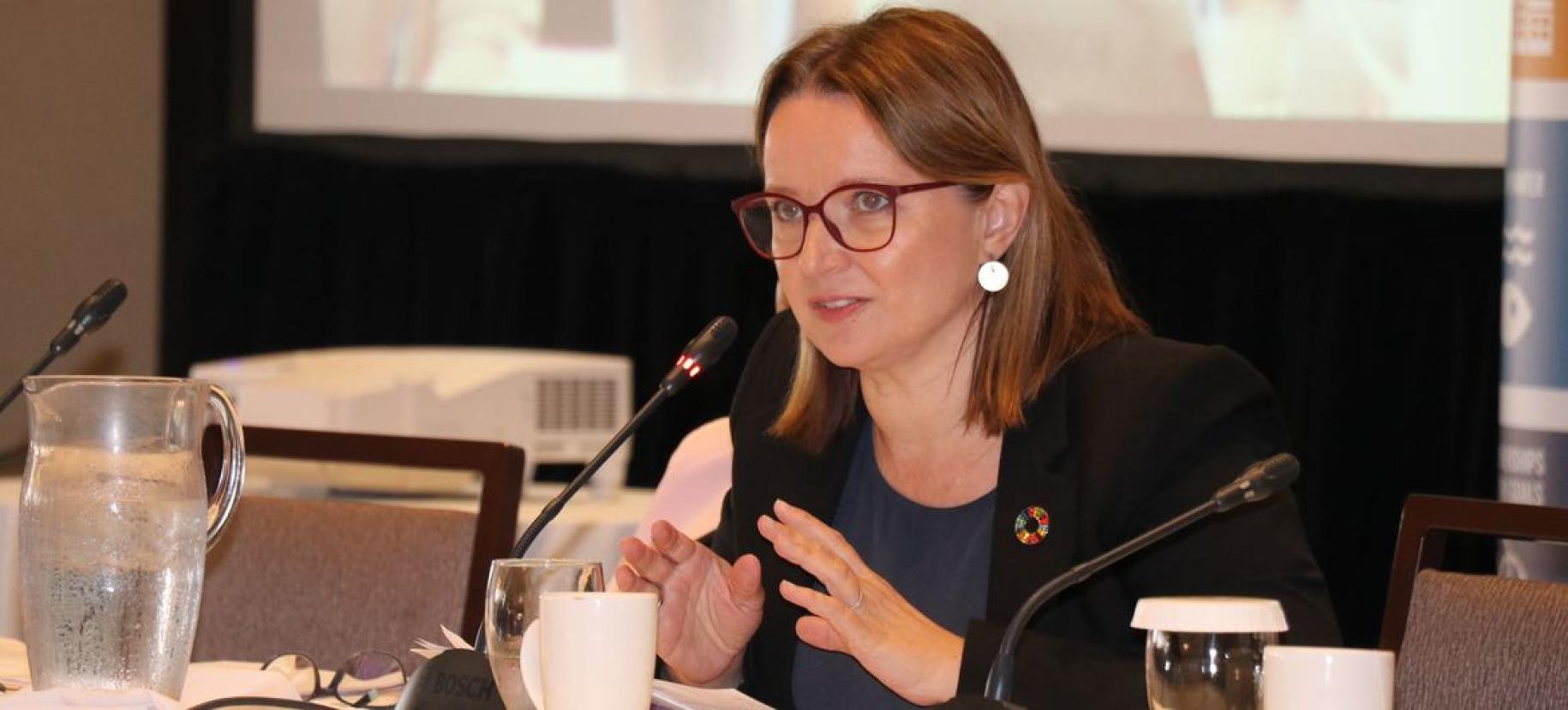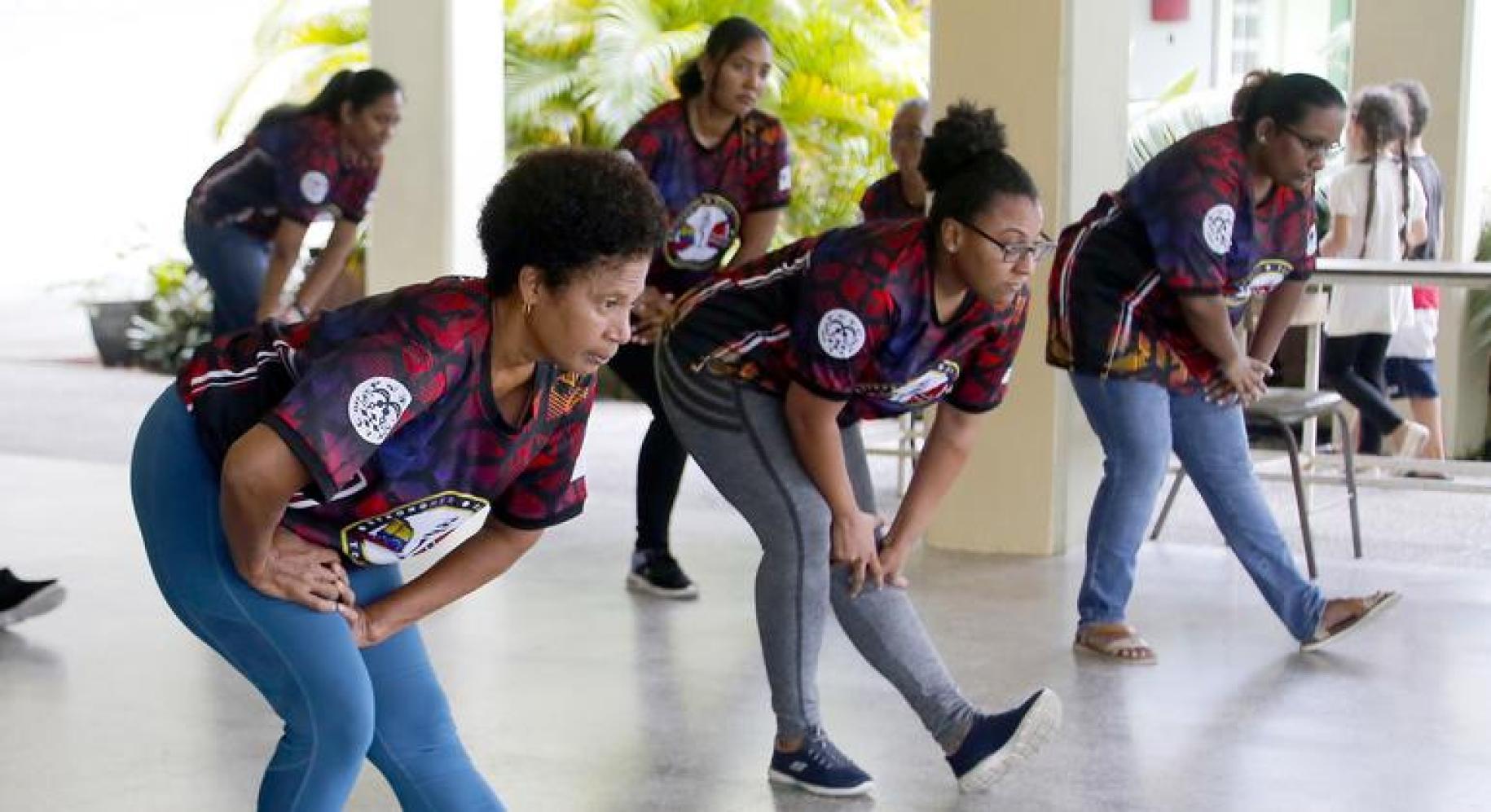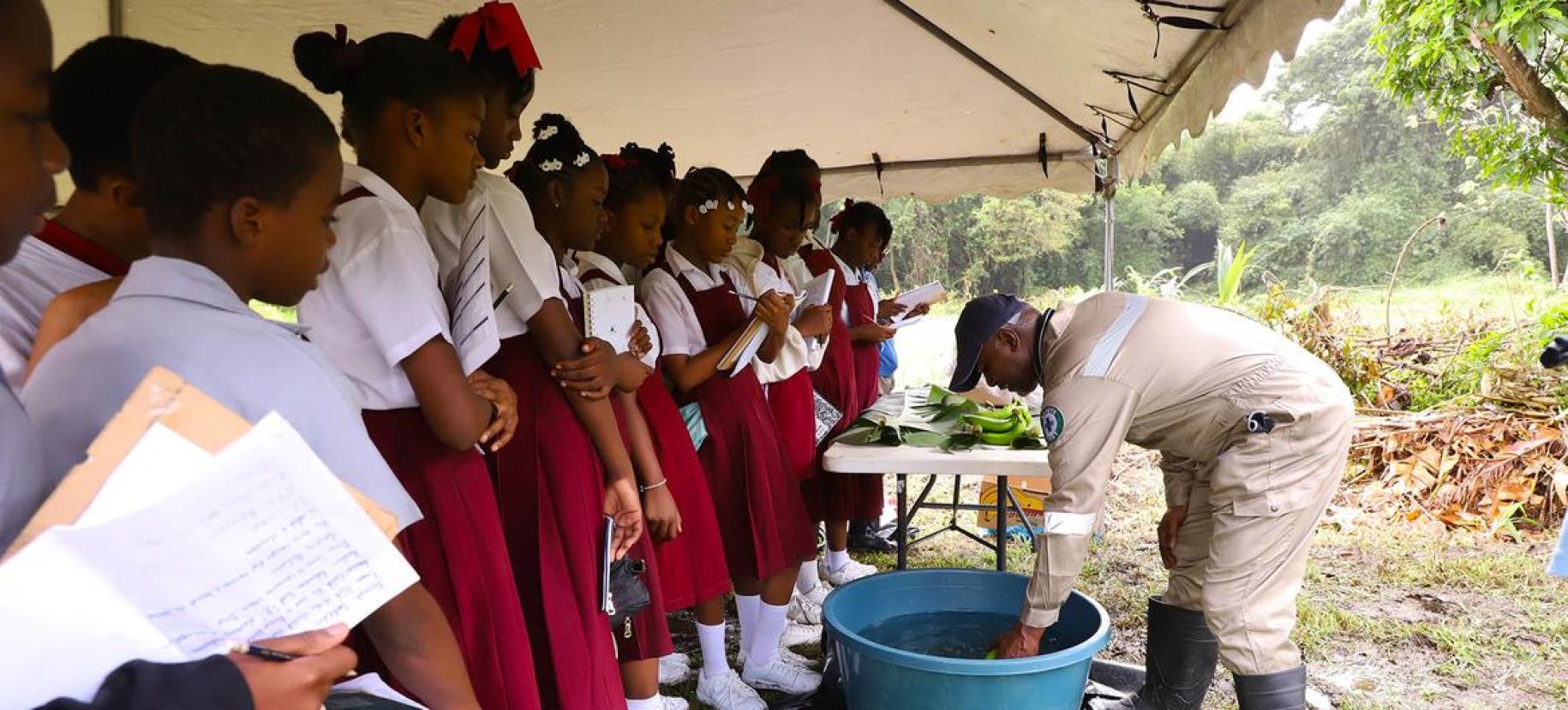‘Staggering proposition’ reaching SDGs for small island States: Resident Coordinator in Trinidad and Tobago

Achieving the 17 Sustainable Development Goals (SDGs) can seem link a staggering proposition for resource-starved small island developing States, but in Trinidad and Tobago, where I serve as UN Resident Coordinator, an inexorable spirit is helping the country get closer to realizing the challenging targets.
On 18-19 September, Trinidad and Tobago joined other countries around the world at the SDG Summit in New York to take stock of what progress has been made ahead of the 2030 deadline for realizing the goals. The Summit, which marked the half-way point towards 2030, resulted in the adoption of a sweeping Political Declaration which reaffirmed the shared commitment of Member States to end poverty and hunger, combat inequalities and build peaceful societies.
This declaration will feature centre stage in Trinidad and Tobago’s presidency of the UN General Assembly and will play a key role in guiding the world towards the 17 SDGs and 169 targets over the next six years.

Yet for Trinidad and Tobago, there is an added layer of complexity to achieving these goals; its high per capita income makes the country ineligible for Official Development Assistance (ODA) finance, despite the many structural vulnerabilities it faces, exacerbated by climate change, global shocks, and the illegal trade of weapons and drugs.
When it comes to SDG financing and the potential for new investments, Trinidad and Tobago has to rely largely on its own budgetary resources. The UN, bilateral donors, and international financial institutions provide grants for important work, but these projects are limited in scale and duration.
That means the monumental strides required to achieve sustainable development demand greater domestic resource mobilization, innovative thinking, and unconventional partnerships.
Here’s how our UN team is helping Trinidad and Tobago take these critical steps:
Halftime huddle
Earlier this month an SDG Roundtable consultation was convened by the Ministry of Planning and Development in the capital, Port of Spain, to pinpoint which SDGs need accelerated momentum to be on track by 2030.
More than 100 voices from the public and private sectors, civil society, international financial institutions, community-based organizations, and the global development community sat around a table that filled the venue.
Data show that Trinidad and Tobago has made significant progress on some of the SDGs, while others require review and acceleration. A number of SDG targets have slowed or stagnated.
While important work is happening in these areas, a jumpstart is needed to rejuvenate momentum.
Existential questions
Participants in the room began tackling what feel like existential questions about the country’s future. What does “getting it right” by 2030 look like? What strategic commitments should we make to accelerate SDG progress?
The chorus of answers from the audience was unanimous on a few key themes. Better data and national statistics: All stakeholders agree the country needs more robust tools to make data-driven decisions.
As Minister of Planning and Development, Pennelope Beckles, succinctly stated it in her remarks, ‘what does not get measured, does not get done.’
Without more timely data being produced and collated, it is difficult to track the SDGs. That means it’s also challenging to know where to target stimulus funding. Digitization of government services would bring immediate benefits in this area. The private sector also has a role it can play in sharing relevant data to improve the country’s data ecosystem and monitoring capacity.

Poverty reduction
The issue of poverty was raised time and again during the three-hour discussion. A private sector leader linked poverty to poor education outcomes and increased risk of delinquency. A health professional highlighted the interplay between poverty and inequality. A public officer spoke about the need to measure poverty through a multidimensional lens.
Quality education
When participants discussed education, the synthesis between the 17 Goals became more apparent.One participant pointed out the limited capacity of the education system to accommodate persons with disabilities. Another cited challenges facing university graduates, who struggle to find jobs that match their area of study. She said the resultant brain drain diminishes the local talent pool.
Yet another contributor called for a restructured curriculum to prepare students for the labour market disruptions that have already begun as artificial intelligence (AI) takes root.
With education outcomes linked to Decent Work and Economic Growth (SDG 8), Gender Equality (SDG 5) and Reduced Inequalities (SDG 10), there was agreement among participants that targeting this area can yield ripple effects across the SDG agenda.

Peace and security
From the business leader to the civil society advocate, the issue of violence recurred throughout the discussion as an imperative focus. Whether they were talking about the young men who slide into delinquency or the costs of insecurity on a company’s bottom line, every sector in the room identified a different impact of crime on society.
Progress in achieving other SDGs linked to inequality, access to education, and poverty could produce significant benefits in reducing violence. That would save the country money it could invest into developing its human capital.
Targeted strategy
By bringing together a network of development partners in search of common ground, the benefits of this national roundtable went beyond the SDG Summit. It offered direction for the Government’s halftime strategy review on a revitalized plan of action for the SDGs over the next six years. And it reinforced the commitment to achieving equitable progress and prosperity - with a resounding win in the second half.
This blog was written by UN Resident Coordinator in Trinidad and Tobago Joanna Kazana-Wisniowiecki. The original, unabridged
version was published by UN News. To learn more about the work of the UN in Trinidad and Tobago visit trinidadandtobago.un.org













